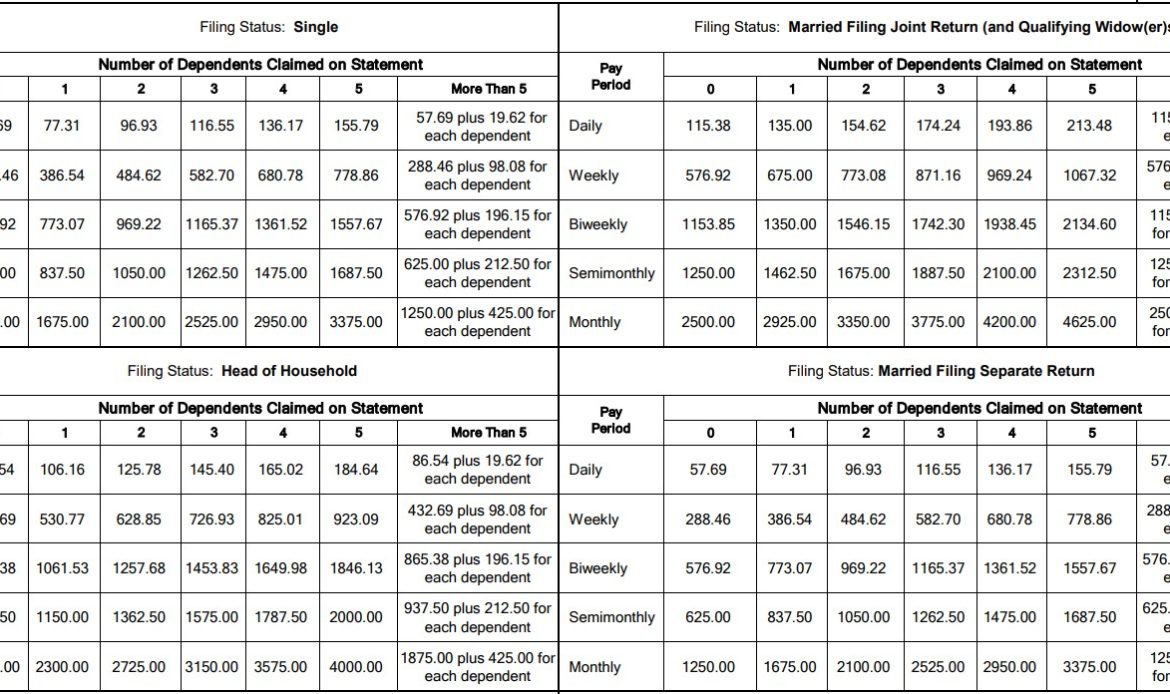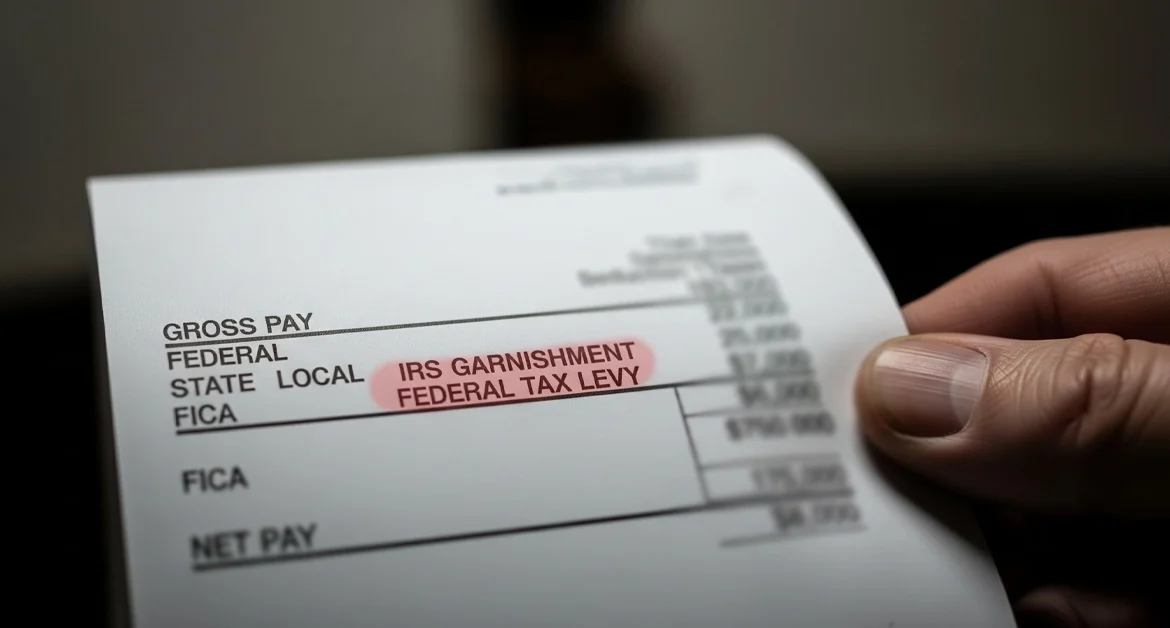The Short Answer: Yes
The IRS has the legal authority to garnish wages if you owe back taxes.
This is called a wage levy, and it allows the IRS to order your employer to send part of your paycheck directly to them until the debt is paid.
Unlike private creditors who need a court order, the IRS can begin garnishment after sending required notices.
That makes it one of the fastest and most stressful collection tools the IRS uses.
How IRS Wage Garnishment Works
Before the IRS takes wages, it must:
- Assess the tax debt.
- Send a Notice and Demand for Payment.
- Issue a Final Notice of Intent to Levy at least 30 days before garnishment.
Once in effect, your employer is required by law to withhold part of your pay and forward it to the IRS.
The garnishment continues until the debt is paid, the levy is released, or another agreement is reached.
How Much of My Paycheck Can the IRS Take?
The IRS does not take a flat percentage like most creditors. Instead, it leaves you with an exempt amount based on:
- Filing status (single, married, head of household).
- Number of dependents.
- A standard allowance chart updated annually (IRS Publication 1494).
Everything above the exempt amount can be garnished. This often works out to 50%–70% of a paycheck, depending on income and family size.

How to Stop IRS Wage Garnishment
Thankfully, there are ways to halt or prevent wage levies:
- Set up an Installment Agreement. Regular monthly payments can stop garnishment.
- Request Currently Not Collectible status. If you can show hardship, the IRS may temporarily suspend collection.
- Apply for an Offer in Compromise. If eligible, you may settle your debt for less than you owe.
- File an appeal. If you act within the notice window, you can challenge or delay garnishment.
The sooner you respond, the more options you have. Waiting until your paycheck is already cut can limit your choices.
Connection to Property Seizures
For many taxpayers, wage garnishment is the first serious IRS collection action they experience. But it isn’t the only one. The IRS also has the authority to seize property in extreme cases.
We covered that concern in our recent article Can the IRS Take My House or Car if I Owe Back Taxes?.
Together, these blogs explain how the IRS escalates from income-based collection (your paycheck) to asset-based collection (your home or vehicle).
Bottom Line
Yes, the IRS can take part of your wages or paycheck. The exact amount depends on your filing status and dependents, but it can leave you with very little to live on.
Fortunately, there are clear steps you can take to stop garnishment — from setting up a payment plan to negotiating a settlement. Acting quickly is the key to protecting your paycheck.


